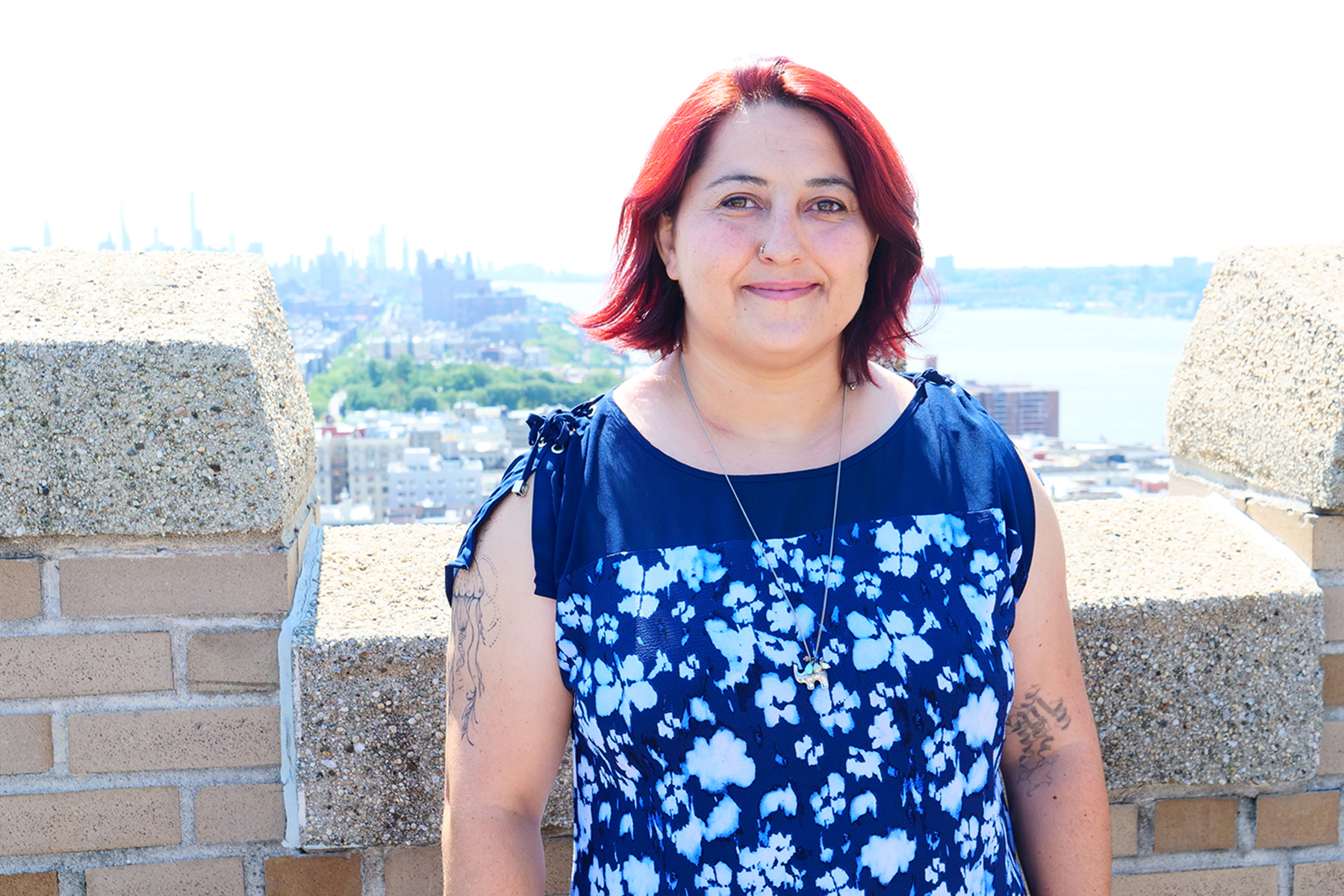Genomic Privacy, Increasing Data Access Among Foundational Research Topics Of Gürsoy Lab
Advances in functional genomics have introduced a world of possibilities within the research and clinical settings, while personal genetic testing services like 23andMe have become increasingly popular for people searching for information about their personal traits and potential health conditions.
Those advances, however, also create dangerous possibilities around privacy. Dr. Gamze Gürsoy, who began her new role as Assistant Professor in the Department of Biomedical Informatics this semester, is focused on developing tools to protect data at both the personal and population level, while also increasing biomedical data access so that this protected data can be studied by the scientific community.

Dr. Gamze Gürsoy
“We already know there are privacy issues with next-generation sequencing, all-genome sequencing or genotyping, but for functional genomics, we keep developing new techniques, new data types, but we don’t know much about the privacy of it,” Gürsoy said. “I started developing statistical tools to understand how much leakage there is in the data, and further developing ways to protect that privacy while enabling the sharing of the data, or the analysis on the data while protecting privacy.”
The winding path to this research began with a Chemical Engineering degree from Bogazici University in Istanbul, Turkey; Bogazici Chemical Engineering specialized in theoretical studies, so her research at the time focused heavily in the area of computational biology. Protein folding was a hot topic at the time when Gürsoy began pursuing her PhD in Bioinformatics at the University of Illinois at Chicago, but functional genomics was an emerging area that ultimately grabbed her attention.
“It was a bit risky because there was no one expert in the area I wanted to study, but I had a very supportive PhD advisor (Dr. Jie Liang) who really trusted me,” she said. “We started studying three-dimensional structures of genome, and I started to learn a lot about genomics, and functional genomics in particular.”
Her research around genomics, as well as software design and implementation, provided a strong foundation for the path Gürsoy wanted to take her research, but she recognized a need to learn more about genetics. She pursued that over five years as a post-doc under Dr. Mark Gerstein at Yale University.
“I was really good at coding and math, so he suggested that I could be really good at genome privacy if I was interested in it,” she said. “I already had a personal interest in privacy, even if I didn’t understand it all that well. I found out that you could really learn a lot about genetics when you are working to protect the privacy of genetics.”
“It relates to the work I did in my PhD, because I use the data,” Gürsoy added. “Now I was working on how I can use the data, but also protect the privacy as well.”
Her work in the area of genomic privacy has been highlighted in Nature Reviews Genetics (Functional Genomics Data: privacy risk assessment and technological mitigation) Cell (Data Sanitization to Reduce Private Information Leakage from Functional Genomics) and Cell Systems (Privacy-preserving genotype imputation with fully homomorphic encryption), while she has published research around using blockchain for genomic data access in BMC Medical Genomics (Using blockchain to log genome dataset access: efficient storage and query).
I started developing statistical tools to understand how much leakage there is in the data, and further developing ways to protect that privacy while enabling the sharing of the data, or the analysis on the data while protecting privacy.
Gamze Gürsoy
She comes to Columbia with the hope of expanding her work around privacy, while also collaborating with faculty in Systems Biology and continuing earlier work on three-dimensional genomics. Besides her role as Assistant Professor in DBMI, she will also be a Core Faculty Member at the New York Genome Center.
“I would love to continue working on genome privacy, but I would also like to work on the privacy of other types of data in the research or clinical settings,” Gürsoy said. “That was one of the reasons I wanted to be at DBMI, because there is such an expertise in EHR and clinical data. I wanted to learn, but also bring my expertise on privacy for data.”
She has already found interest in privacy within DBMI, both from faculty and trainees. While privacy concerns cast a wide net over all medical research, Gürsoy noted how vital genomic and genetic privacy is at both the individual and population levels.
“We want to make associations between genetics and diseases, and to do that, we have to collect data from people with or without diseases,” Gürsoy said. “The genetic data is very unique to the individual person, so it is an identifier. Even though we share 99% of our genomes, that 1% is very unique. We can mine somebody without knowing that person, but identify them through research. Once it’s out there, you can’t change it. It’s not like a credit card, where it gets leaked and you get a new one. Once it’s out, it’s out. It says a lot about ourselves, but also our offspring.”
Gürsoy has demonstrated her passion for research and learning throughout her journey to Columbia, but she is excited to continue teaching and mentoring DBMI students. She focuses on projects over exams so that students can experience hands-on research, and she enjoyed mentoring as many as 15-16 undergrads at Yale. While the COVID-19 pandemic made human connection more challenging, Gürsoy pushed her students to remain collaborative, understand what each other was doing, and take part in her own research (each of her publications includes at least one undergraduate).
“I always pride myself in knowing what everybody else was doing in any lab I was part of,” she said. “People should have their individual projects, but also contribute to each other’s as well. The best way to do that is to create a team. I can’t wait to have my own group and do all of that.”


